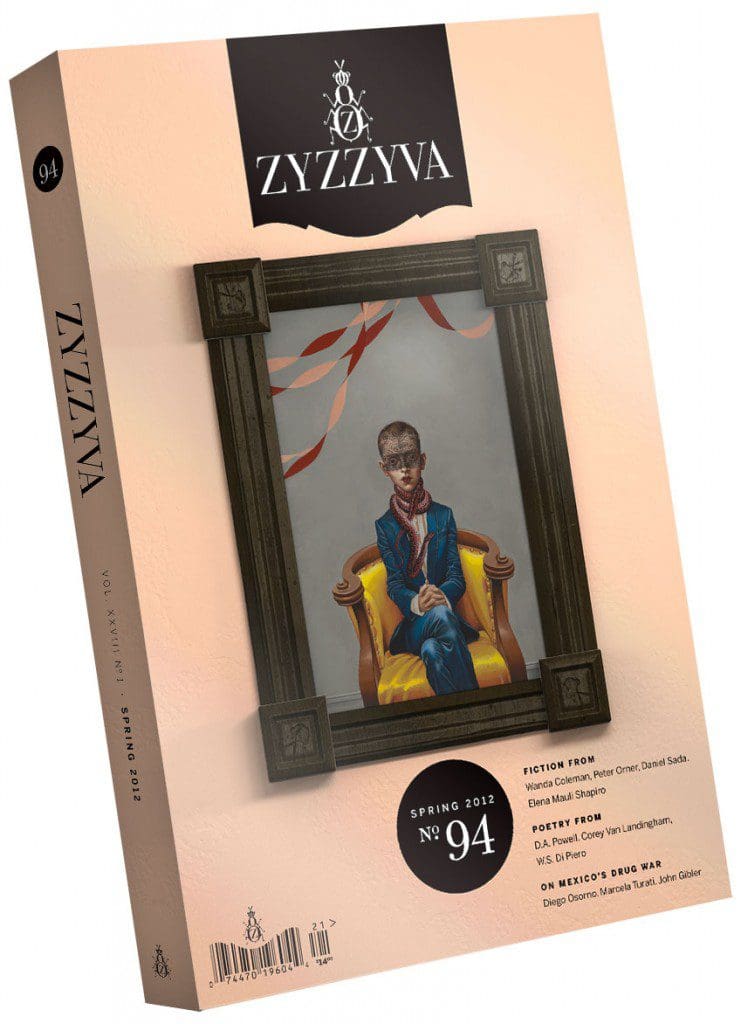Vanessa Veselka is the author of the novel Zazen, which won the 2012 PEN/Bingham prize for fiction. Her work has appeared in Tin House, the Atlantic, Bust, Bitch, and other publications. And according to her bio, Veselka, who lives in Portland, Ore., has been at various times a teenage runaway, an expatriate, a union organizer, and a student of paleontology.
Her story “Christopher Hitchens” appears in ZYZZYVA’s 2012 Winter issue. Both funny and chilling, it tells of a young mother desperately looking to lose all her beliefs with the help of Lyle, an expert in such things who has a face like Eric Clapton’s. (“You’d never recognize him without context,” says the narrator.)
“Christopher Hitchens” is the second of three connected stories. The first, “Just Before Elena,” ran in Tin House No. 53. The third story is slated to run in SWINK.
The following is an excerpt from “Christopher Hitchens.”
[…]
Continue Reading

